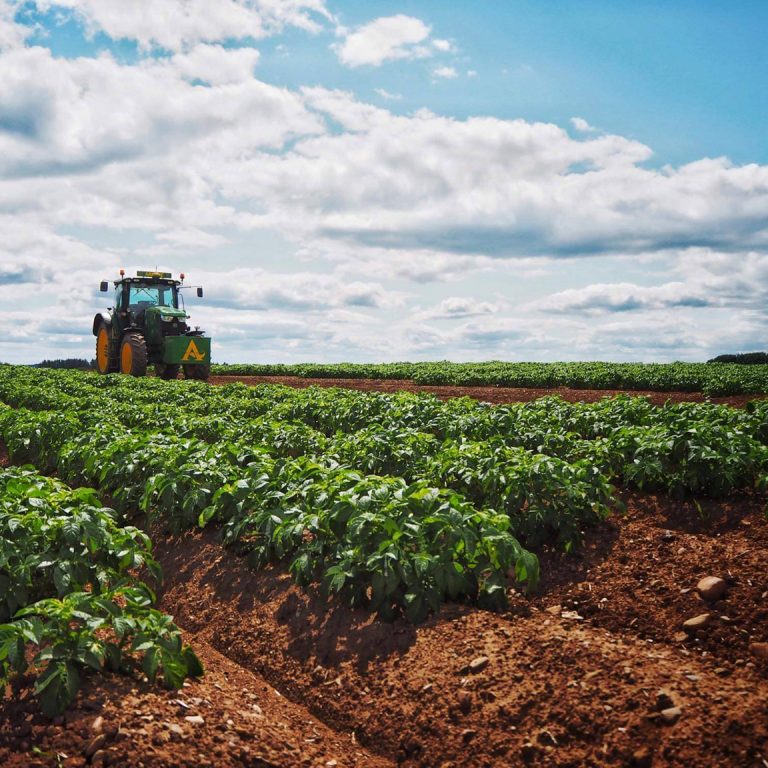This advertising content was produced in collaboration with our partner, Arbikie Distillery.
Throughout Scotland’s long history of producing spirits, various distilling methods have been tried, perfected, and abandoned. Yet there’s still room for firsts. Arbikie Distillery, which opened in 2014, is Scotland’s first single-site, field-to-bottle distillery making both aged and unaged spirits using traditional Scotch distilling methods and equipment.
At the heart of Arbikie are three guiding principles: sustainability; Scotch distilling tradition; and a dedication to ingredient-first production. Led by brothers John, Iain, and David Stirling, Arbikie grows, distills, matures, and bottles its spirits at the 2,000-acre Arbikie Farm Distillery. Water comes from Arbikie’s underground lagoon, and the ingredients that go into the spirits—including juniper, strawberries, potatoes, wheat, chili, and honey—are planted, sown, grown, and harvested within an arm’s length of the distillery.

Don’t miss the latest drinks industry news and insights. Sign up for our award-winning newsletters and get insider intel, resources, and trends delivered to your inbox every week.
“Our aim is simple,” says master distiller Kirsty Black, who was named one of the top 10 female master distillers by Spirits Business Magazine, “to become the most sustainable distillery in the world.”
Arbikie is well on its way as the world’s first green hydrogen distillery. Energy comes from solar power, and because Arbikie uses home-grown ingredients, the process of getting the raw materials to the still is a nearly zero-mile production. On the farm, Arbikie practices intercropping, regenerative farming, and other sustainable practices, and all of its crops are non-GMO. Peas and other legumes bring nitrogen from the air into the soil, so less fertilizer is needed for the next growing season.
Arbikie’s sustainability-first ethos is best exemplified by its Nàdar series, the first climate-positive gin and vodka. Nàdar, which is Gaelic for nature, is a fitting name and not just due to the farm-first ingredients. Nàdar Gin has a carbon footprint of -1.54 kilograms of CO2 per 700-milliliter bottle, aided by eco-friendly seals, labels that use paper sourced from FSC-certified forests, and stoppers made with reclaimed cork granules. The base spirit is made at the distillery from environmentally friendly peas, while the botanicals are grown on-site or purchased from reputable suppliers. Any production emissions are offset through the Gold Standard carbon offset program. Nàdar Vodka followed the success of the gin, utilizing the sustainable base spirit for a vibrant, floral flavor profile.
Other Arbikie spirits stand out for their own sustainability accolades and notable firsts. There’s the Highland Rye, Scotland’s first rye whisky in over 100 years; Kirsty’s Gin, which uses botanicals like seaweed, Carline thistle, and blaeberries chosen by master distiller Kirsty Black; and Tattie Bogle Vodka, Scotland’s first potato vodka made with rejected, wonky potatoes.
Arbikie is young by Scotch distilling standards, but distilling is nothing new on the property: records show distillation happening on the site in 1794—an era when nearly all spirit production was field-to-bottle—and farming on the land dates back to 1660. Through a blend of tradition and innovation, Arbikie is leading the way in sustainable, ingredient-first distilling.





